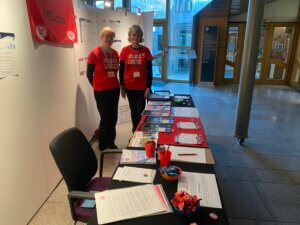This is the third article in our series on the #MEAction RFI polling data. Click here for Part I and here for Part II.
Clinical and Research Testing

Potential Treatments

Multiple studies have found errors in cellular respiration and general mitochondrial dysfunction in ME patients, including:
- Disordered glycolysis
- Coenzyme Q-10 deficiency correlated to cognitive dysfunction
- Abnormality in the structure of mitochondria, including mitochondrial degeneration, atrophy of type II fibers, and fusion and branching of mitochondrial cristae
- Preliminary evidence of disordered citric acid cycle
Given the complexity of energy metabolism, cellular respiration may be affected at different junctures of different pathways in different patients; this may be a source of patient subgroups. It is urgent that the NIH study energy metabolism dysfunction in ME an CFS patients and test the efficacy of replacement therapies.
Stakeholders also rated Rituximab and anti-virals as very important, while the indictment of CBT and GET therapies as practiced by the BPS school is clear.
Epidemiology and Medical Hypotheses

Contrasting recovered or near-recovered patients with patients who progressively decline
Stakeholders prioritized understanding why some patients relapse-remit, some patients grow progressively worse, and others seem to regain or nearly regain their previous level of function – what is different about these 5% of adults who recover?
Children with ME
There are only a small handful of studies on adolescents or children with ME.
The Vagus Nerve Hypothesis
The vagus nerve hypothesis states that it is an infection of the vagus nerve itself that causes an exaggerated inflammatory response which results in the symptoms of ME. The vagus nerve signals the body to rest in the case of a peripheral infection, but an infection of the nerve itself would amplify this signal.
Genetics of families where ME is prevalent
27.96% of #MEAction survey respondents stated they had at least one family member with ME or CFS (n=1266). It may be that a particular, heritable immunological phenotype can predispose members of the population to developing ME or CFS.
Thank you again for your participation in the #MEAction RFI — you made it possible for us to turn in a thorough report describing the priorities of 1800 stakeholders! Every bit of advocacy helps move us forward.
Save
Save
Save
Save
Save
Save
Save
Save
Save
Save
Save
Save
Save
Save






3 thoughts on “#MEAction RFI Poll Report (Part 3 of 3)”
Thank you so much for all the work you put into this. 🙂
Outstanding job.
Thanks to everyone who participated! I keep reminding myself that I should publish the larger version, now that the #MEAction one is out! However, a lot happening as we approach the protests…
Comments are closed.